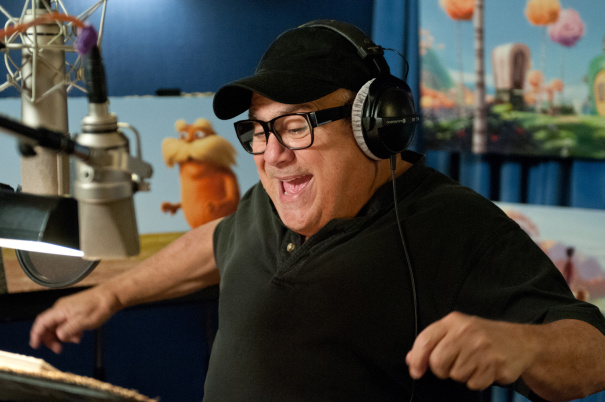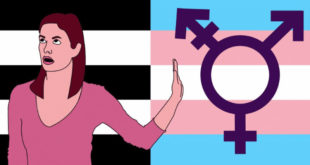Does this faggot seriously think he’s fooling anyone?
We’ve got some serious breaking news on trannies.
The Italian-language version of Emerald Fennell’s revenge thriller Promising Young Woman has come under fire for giving trans actor Laverne Cox a male voice. Scheduled to hit theatres across the country on 13 May, the release has been pushed back after a clip of Una Donna Promettente was posted by Universal Pictures Italy on 6 May. In the since-restricted video, Cox’s character, Gail, talks to protagonist Cassie, played by Carey Mulligan, in a distinctively masculine tone. The Orange Is the New Black star was given the deep tones of voice actor Roberto Pedicini. Italian viewers couldn’t believe their ears, immediately taking to social media to voice their outrage.
Breaking: Italians freak out over misgendered tranny and cannot believe their ears. Lack of belief quickly transforms into outrage.
“I think this dubbing choice was a straight-up act of violence,” Italian trans actor and voice actor Vittoria Schisano tells the Guardian. “It’s insulting. I’d feel bullied if I were [Cox],” she added. Schisano dubbed Cox on Netflix documentary Amend: The Fight for America, and was the Italian voice behind trans character Natalie on the latest season of Big Mouth. Her most recent project is Disney’s Raya and the Last Dragon, where she voices General Atitaya. Schisano says she doesn’t know any other trans voice actors in Italy and wasn’t even asked to read for Cox’s role in Promising Young Woman.
This is a white tranny.
If he had done the voice, wouldn’t it then be some act of violence against blacks?
The Guardian goes on to talk about the fascist roots of the… dubbing industry.
The dubbing industry continues to be ruled by fascistic… dubbing elites.
A practice dating back to the early sound era, dubbing in Italy received a push under the fascist regime when the use of foreign languages in movies became prohibited in the 1930s. Nearly 90 years later, dubbing is still the norm in Italy as well as other countries in Europe, including Spain and France. Is it an old-fashioned system whose racist and transphobic limitations are now showing, or a longstanding European tradition of excellence in storytelling, striving to provide a more accurate representation?
It’s no secret that Italy’s dubbing elites are overwhelmingly white and cis. For Daniele Giuliani, the newly appointed president of Associazione Nazionale Attori Doppiatori (ANAD), this isn’t discriminatory. “We’ve never had black voice actors – not because we didn’t want them, but because there aren’t any who have specialised in voice acting,” Giuliani says.
Giuliani also explains that some studios have asked them to find “alternative solutions”, and resort to non-specialised dubbers, but this hasn’t always worked seamlessly. “A priori inclusion risks typecasting our actors and undermines the quality of our work,” he says. “When the result was artistically valid, we’ve gone with it.”
Honestly, dubbing is about the most vulgar concept of all concepts.
I have had arguments with Germans and Russians about this. But listen: if I’m going to watch a German or Russian movie, I do not watch some sickening dub. These people are Philistines, the dubbers.
I did think it was funny that Danny DeVito does his own dubs in languages he doesn’t know. That’s maybe kinda cool and interesting.
But overall, the vulgarity of dubbing is like the vulgarity of modern architecture, which is the kind of lizardly swank that led to the modern Tranny World.
Trannies are simply the final form of the death of aristocratic norms, the replacement of aristocracy with peasant vulgarism.
 Daily Stormer The Most Censored Publication in History
Daily Stormer The Most Censored Publication in History



